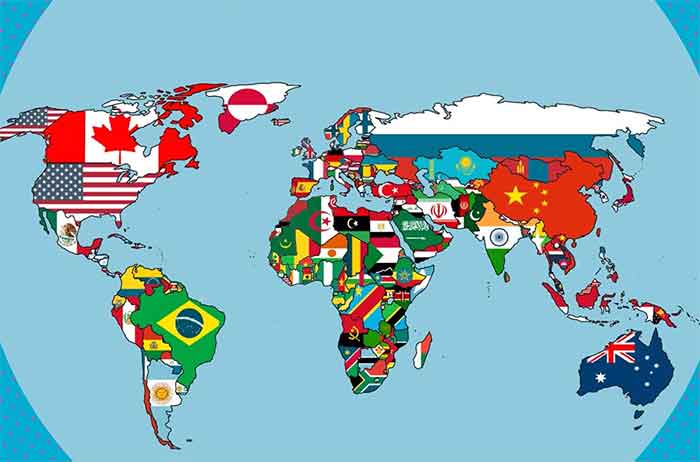
A book announcement
I would like to announce the publication of a new book, which may be downloaded and circulated free of charge from the following link:
https://eacpe.org/content/uploads/2022/10/Against-Nationalism-by-John-Scales-Avery.pdf
A dangerous anachronism
Today, in an era of all-destroying nuclear weapons, instantaneous global communication and worldwide economic interdependence, nationalism has become a dangerous anachronism. History, as it is taught today, is centered on the country where it is being taught. Our own country is the most important. Our own country is always in the right, according to nationalist historians. Patriotic soldiers and generals are exalted. It is sweet and noble to die for one’s country.
But today, war has become prohibitively dangerous. Unless we rid the world of nuclear weapons, the end of human civilization and much of the biosphere is just around the corner. Nationalism has become a dangerous anachronism. It must be replaced by a wider view of the world where cooperation is seen to be more important than competition, and where all nations are valued equally for their contributions to our mutual civilization.
Tribalism and Nationalism
Human nature seems to have a fault, which might be called “Tribalism”. When our ancestors lived in small tribes of genetically homogeneous hunter-gatherers, competing for territory with other tribes on the grasslands of Africa, the tribe as a whole either survived or perished. Thus the group was the unit on which Darwinian forces of natural selection acted. For this reason, fierce loyalty to one’s own tribe and equally fierce aggression towards competing groups seems to be built into our inherited emotional nature. In the modern world, this genetically programmed tendency supports nationalism. Fortunately, education can overwrite inherited tendencies. Today education supports nationalism, but hopefully, in the future, reformed education will support internationalism and cooperation.
Against the institution of war
Because the world today spends roughly 2 trillion U.S. dollars on armaments every year, it follows that very many people are making their living from war. This is the reason why it is correct to call war a social and economic institution. However, in an era of all-destroying thermonuclear weapons, war has become prohibitively dangerous, and we must somehow find a way to abolish it as an institution.
Wars of the United States
At the end of World War II, Europe, Russia, China and Japan were all in ruins. The United States was the only major industrialized power to survive the war relatively unscathed. The United States, formerly an isolationist country, stepped hesitantly onto the global stage. However, after the collapse of the Soviet Union, hesitancy was replaced by the triumphalism and aggression of the “Project For a New American Century”, whose open aim was world domination through military force. Wars were explained to the American people as being necessary because of the threat of Communism, and later Terrorism.
Human history as cultural history
Cultural history can be seen as an antidote for nationalism. It allows us to take a wider view of the world, where cooperation is more important than conflict, and where the contributions of all nations, cultures and ethnic groups are recognized.
We need to reform our teaching of history so that the emphasis will be placed on the gradual growth of human culture and knowledge, a growth to which all nations and ethnic groups have contributed. In fact, the millennia-long accumulation of knowledge and culture is a much more important part of human history than the wars and power struggles of rulers and national governments.
Other books on global problems
Other books on global problems, and on cultural history may be downloaded free of charge from the following links:
http://eacpe.org/about-john-scales-avery/
John Scales Avery is a theoretical chemist at the University of Copenhagen. He is noted for his books and research publications in quantum chemistry, thermodynamics, evolution, and history of science. His 2003 book Information Theory and Evolution set forth the view that the phenomenon of life, including its origin, evolution, as well as human cultural evolution, has its background situated in the fields of thermodynamics, statistical mechanics, and information theory. Since 1990 he has been the Chairman of the Danish National Group of Pugwash Conferences on Science and World Affairs. Between 2004 and 2015 he also served as Chairman of the Danish Peace Academy. He founded the Journal of Bioenergetics and Biomembranes, and was for many years its Managing Editor. He also served as Technical Advisor to the World Health Organization, Regional Office for Europe (19881997).
http://www.fredsakademiet.dk/ordbog/aord/a220.htm. He can be reached at [email protected]. To know more about his works visit this link. https://www.johnavery.info/


















































